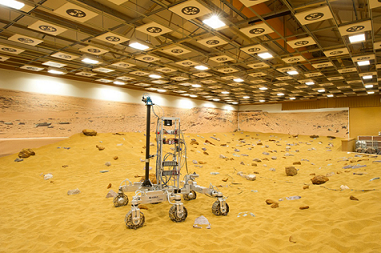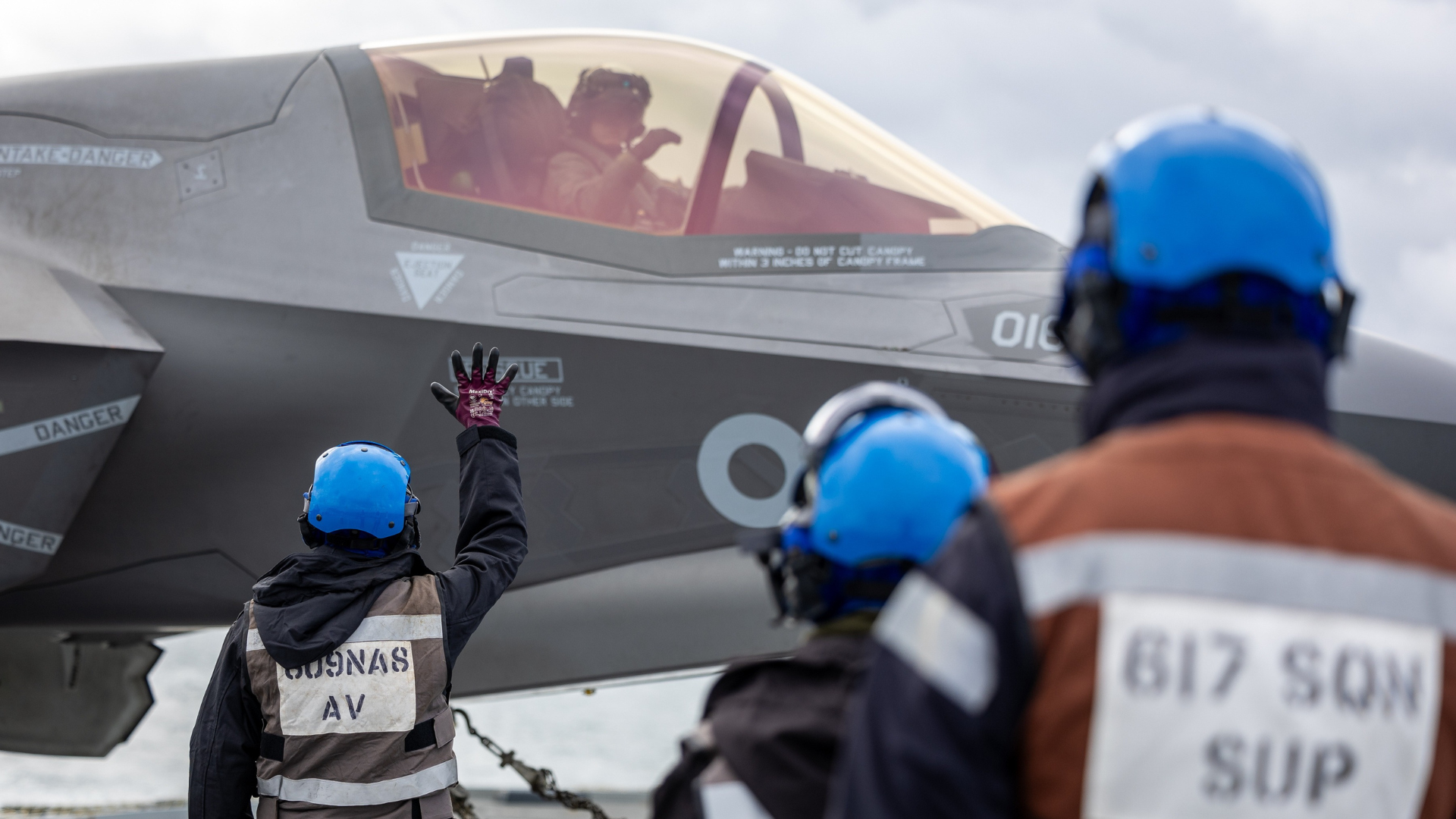
Today Major Tim Peake will be driving a rover – a space exploration vehicle – across the Mars Yard in Stevenage, from the International Space Station, orbiting 248 miles above earth. Tim will use two laptops to control the rover (designed and built in Stevenage) in the Mars Yard – Airbus Group’s simulated Mars environment which mimics the conditions of the planet.
This activity is part of the ESA METERON (Multi-Purpose End To End Robotics Operations Network) project. The project is in preparation for future exploration of space, so that robotic explorers are able to ‘test the waters’ on unexplored planets before sending humans. Robotic explorers will be able to scout landing sites and prepare habitats for humans, making it safer.
Tim will be testing whether an astronaut-robot system can adapt to unforeseen scenarios and drive a rover in a dark cave environment. Currently, the rovers being tested are autonomous; they are able to plot a route, producing 3D maps of the area ahead and drive themselves across the surface. In a dark environment, an astronaut must control the rover as shadows created by rocks can confuse navigation and lack of sunlight means that its battery life suffers.
Due to limited battery life, Major Peake will have a maximum of two hours to complete the task, navigating the simulated cave, avoiding obstacles and identifying rocks which will be marked with fluorescent chemical to make them glow in the rover’s ultraviolet light.
The rover travels at a maximum of 2 centimetres per second, and with radio signals taking a long time to travel from the International Space Station to Mars and back, around 40 minutes, the time delay means very slow progress will be made. With this in mind, the Meteron project is also investigating ways to reduce this time delay.
The project’s findings also has benefits for use on planet earth – controlling robots from afar can be potentially used to investigate areas destroyed by earthquakes and help to find survivors; scientific expeditions into volcanoes, or to the bottom of oceans.
Good luck to Tim Peake and team!





